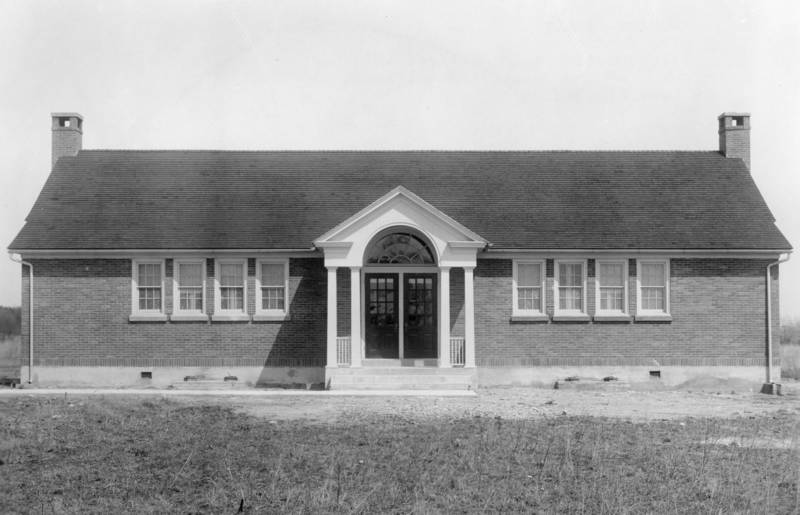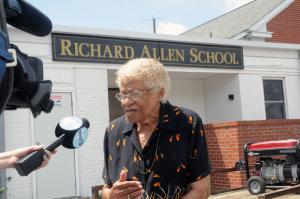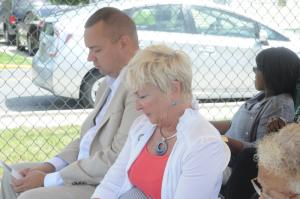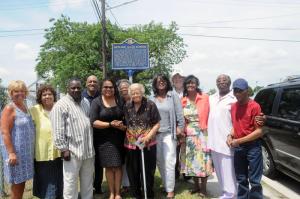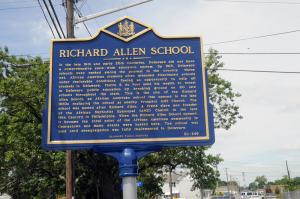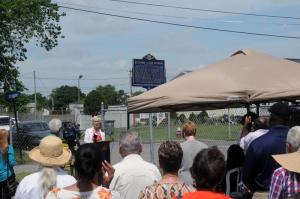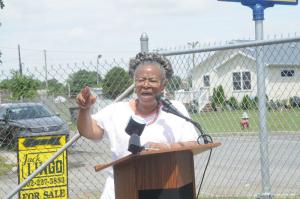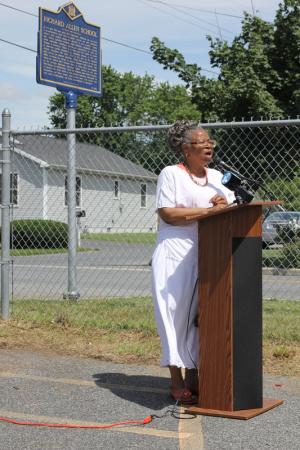A historic marker noting the rich history of Richard Allen School in Georgetown was unveiled June 19, ensuring the school's heritage will remain for future Georgetown residents.
“This is truly a momentous occasion,” said Jane Hovington, president of the Richard Allen Coalition, during a presentation that included former students, legislators and other Sussex County dignitaries. “Now the building will be here to represent the whole community and Delaware.”
In March, members of the Richard Allen Coalition raised concerns over plans to renovate and possibly raze the historic school building by the owner of the property, the Boys and Girls Club.
Since then, the Boys and Girls Club returned the deed to the state pending a bill that would give the coalition ownership of the building after paying up to $6,000 to the Boys and Girls Club for improvements the club made to the facility. The bill unanimously passed the state Senate and awaits action in a House committee before the full House can vote on it.
Rep. Ruth Briggs King, R-Georgetown, a sponsor of the bill and marker, said she expects full support from her colleagues for the bill before the legislative session ends Tuesday, June 30.
“I have spoken to many of them about the urgency of this bill, and it looks very good in the House,” she said.
Boys and Girls Club President George Krupanski said he was glad everything worked out for the Richard Allen school.
“We're delighted,” he said.
Hovington said she was also pleased with the outcome and briefly added, “Everything is wonderful.”
The school holds a significant place in Georgetown history because it was one of 80 built in the 1920s by Pierre du Pont to educate African-American students.
Following desegregation in the late 1960s, the school was used as an elementary for all students in the Indian River School District.
Sen. Brian Pettyjohn, R-Georgetown, went to school there for kindergarten and first grade. He sponsored the bill to turn the school over to the Richard Allen Coalition, and he also sponsored the historic marker along with Briggs King.
“So many generations went to the school,” he said.
Carolyn Roach, secretary of the Richard Allen Coalition, said she is thrilled the building will remain for the community to appreciate. The coalition plans to turn the building into a museum for Sussex County African-American history.
“The school produced doctors, lawyers. Many, many came out of the school,” she said.
Sarah Denison, archivist with Delaware Public Archives, said she needed 10 markers to tell all the history of the building.
“Without you, we wouldn't be able to tell the stories that should be told,” she said, thanking the coalition members for their support.
Historic marker designates site
The historic marker at the Richard Allen School reads as follows:
In the late 19th and early 20th Centuries, Delaware did not have a comprehensive state-wide education system. By 1915, Delaware schools were ranked among the poorest in the country. Worse yet, African American students often attended dilapidated schools under deplorable conditions. Seeing an opportunity to help all students in Delaware, Pierre S. du Pont used his wealth to invest in Delaware public education by breaking ground on 80 new schools throughout the state. This is the site of the Richard Allen School, an African American school that opened in the late 1920s replacing the school at nearby Prospect AME Church. The school was named after Richard Allen, a freed slave and founder of the African Methodist Episcopal Church in the late 18th Century in Philadelphia. When the Richard Allen School opened, it became the focal point of the African American community in Georgetown and many events were hosted here. The school was used until desegregation was fully implemented in Delaware.
Melissa Steele is a staff writer covering the state Legislature, government and police. Her newspaper career spans more than 30 years and includes working for the Delaware State News, Burlington County Times, The News Journal, Dover Post and Milford Beacon before coming to the Cape Gazette in 2012. Her work has received numerous awards, most notably a Pulitzer Prize-adjudicated investigative piece, and a runner-up for the MDDC James S. Keat Freedom of Information Award.











